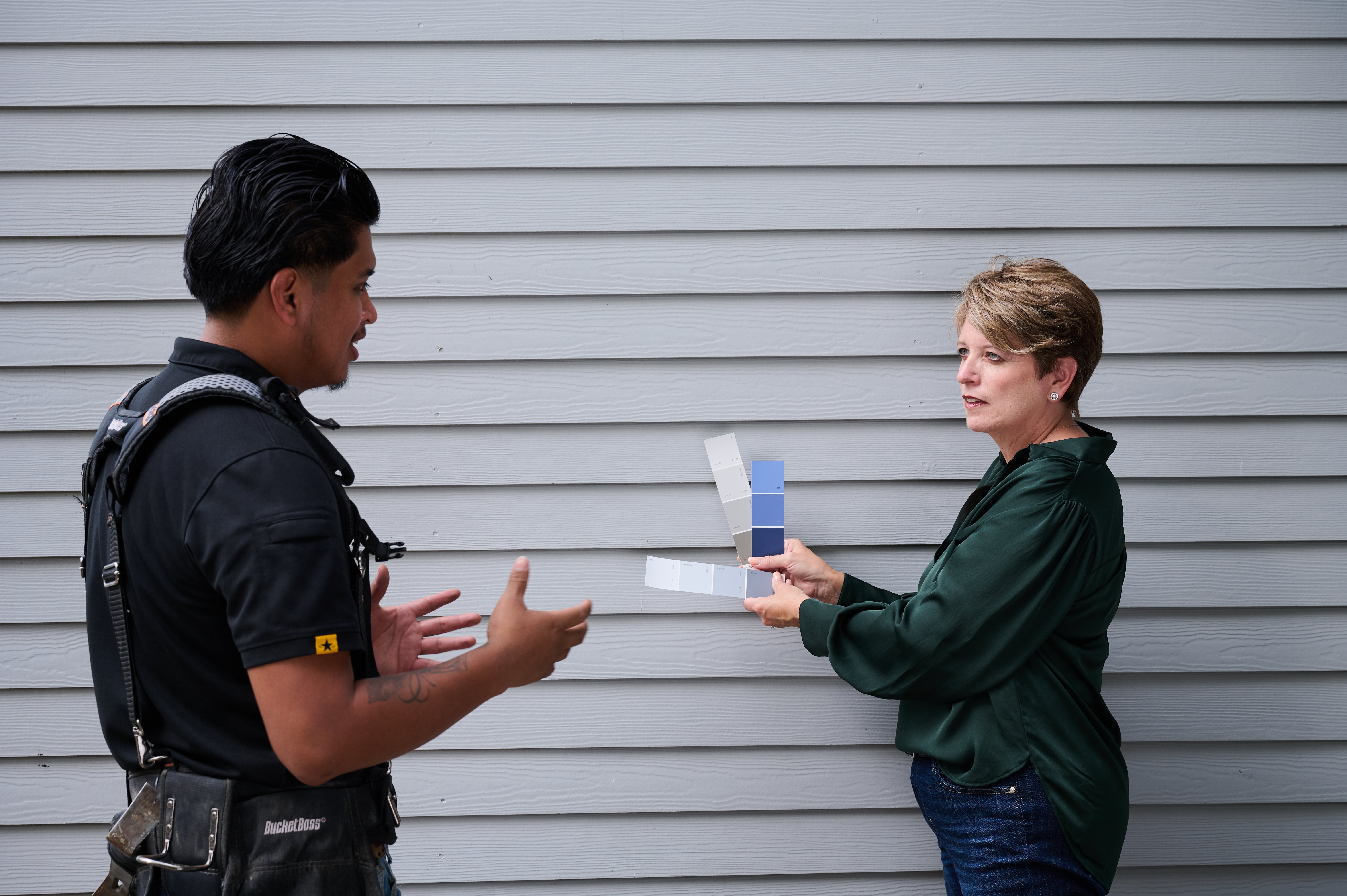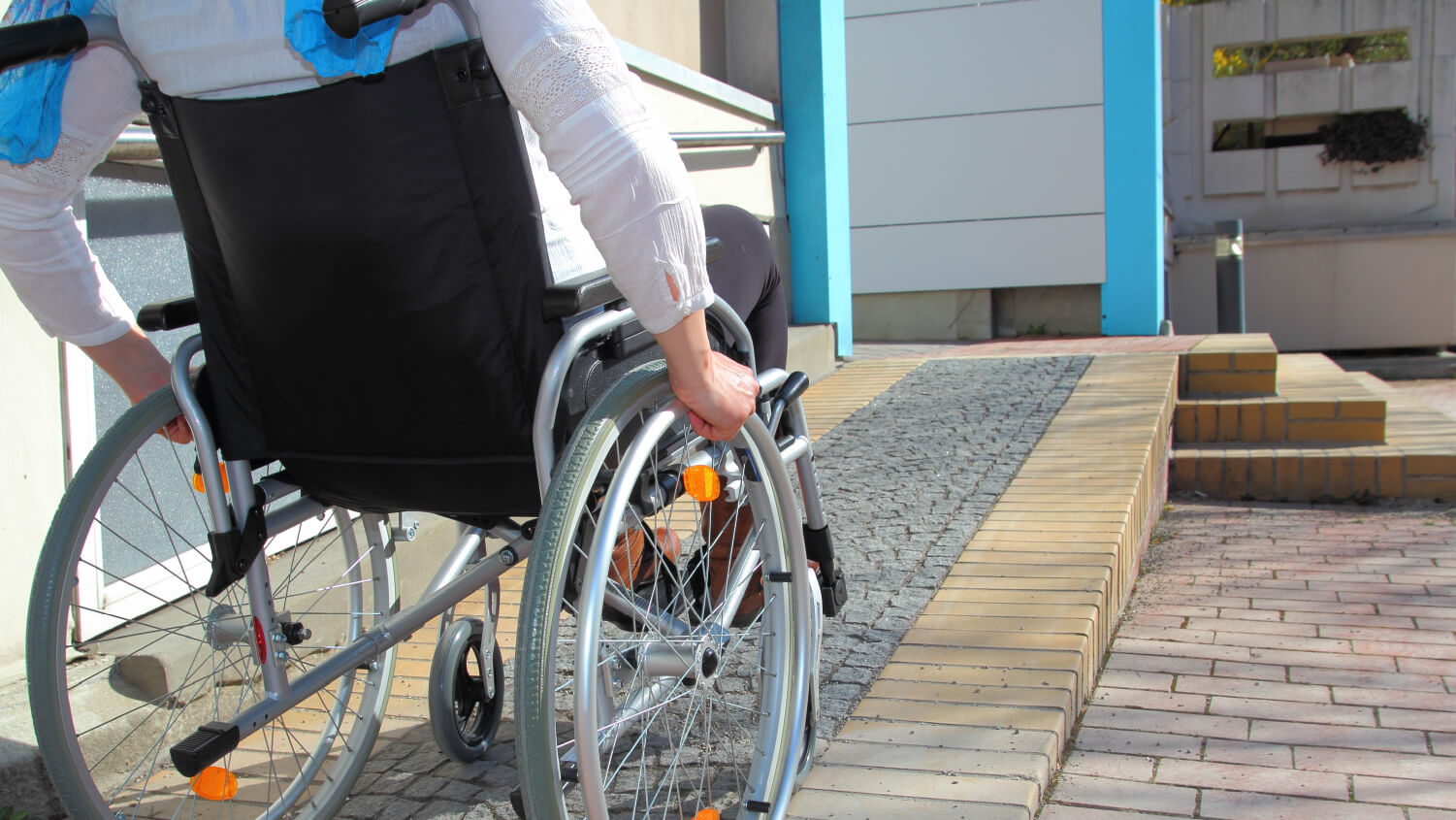
Wondering about the cost to hire a handyman? Discover prices, key cost factors, and money-saving tips to help you plan your next home project.
Booking the best pro for your project is all in asking the right questions


Whether you need someone to powerwash your patio or swap out a light fixture, make sure your handyperson has the relevant experience to get the job done. Learn more about what you need to know when hiring, as well as interview questions for your handyperson prospects.
Word-of-mouth is often the best way to find a skilled handyperson. Ask your family, friends, and neighbors for recommendations, especially if they’ve hired a handyperson recently. You can also search online for a local handyperson and compare reviews. Aim to talk with and get quotes from at least three different contractors so you can compare skill sets, pricing, and quotes.

Preparing a to-do list or project list can help you identify what handyperson skills you are looking for.
Be as specific as possible about the jobs you’d like the handyperson to tackle. These types of pros can take on everything from tightening a leaky faucet to cleaning your gutters to repairing a door. They can also mount a TV, hang artwork, or replace a light fixture.
Having all the details ready ensures your pro can give you an accurate quote and has the skills to do the job. A thorough list also helps you maximize your handyperson’s time at your home. Better to tackle your entire vision board than leave a single forgotten project undone.
Have a to-do list of all the stuff you've been putting off so your handyperson can complete it in one visit, like the light fixture or weatherstripping you've been meaning to change. This way you'll make the most of your time if your handyperson charges a flat rate.
Many handypeople are skilled in various tasks but may not have a license for specialized trades like electrical or plumbing work. If your project involves a specialty trade, check with your local licensing agency to see if the contractor has the right license.
Ask potential contractors if you can speak to a few clients who can vouch for their work. Be sure to check out the contractor’s local reviews online.
Ask the following questions to help ensure you have the right contractor for the job:
How long have you been a handyperson?
Do you have any specialized skills or training?
Do you have a general contractor license or a handyperson certification?
Will you provide a written estimate and contract?
Do you have any questions about the projects on my list?
What’s the most common feedback you hear from your clients?
Before you sign a contract, interview your handyperson and ensure you’ve seen a background check.
Talk with at least three contractors to find one you feel comfortable with. After all, you’ll be working closely with them in your home. Get an idea of their communication style, trustworthiness, and experience level. Comparing quotes can also help you determine what you can get done on your budget.
Your contractor should be able to provide you with a background check. This is an important step, so you and your family feel at ease with getting the project started.

Your handyperson should offer you a contract that details the project scope, cost, payment terms, and timeline, as well as any material or supply costs. A signed contract will keep you and your pro on the same page and protect you and give you leverage should something go wrong.
I am very pleased with the quality of work. My handyman was very friendly, professional, and extremely knowledgeable. He communicated very well and took the time to explain to me exactly what he was going to do and how he was going to do it. He took great care and pride to do the job right. He was a real pleasure to work with. He cleaned up after himself and made sure that everything was put back the way he found it. His price was very fair and I even gave him a little more because I thought he deserved it. I will definitely be using this pro's services for all projects in the future.
— Julio R., Hayward, CA
Take notes and snap a few photos to ensure you have documentation if there are any issues. Write down details such as the number of hours the pro worked and whether the quality matches what you agreed to in the contract.
If you notice any warning signs with your contractor, address them sooner than later. Signs you shouldn't hire a contractor may include:
No reviews or references
Offers a quote that’s much higher or lower than other bids
Won't sign a contract
Asks to be paid in cash
Wants a large down payment (such as over 15% of the total cost)
Does low-quality work
Doesn’t show up when they say they will
Before making the final payment to your handyperson, check out the work from top to bottom. If you have concerns about the quality, discuss them with your handyperson and refer to your contract if needed. Once you feel satisfied with the work, make your final payment. You can also leave an online review to help other homeowners when they’re looking for a handyperson.
On average, hiring a handyperson costs $400. This is a loose estimate, however, as some projects are significantly cheaper or more expensive than that. A handyperson typically charges an hourly rate of $50 to $150. Some handypeople charge per full day, especially for larger projects, with an average daily rate of $350 to $600. Neither of those figures includes the cost of materials. It’s also common for a handyperson to have a minimum fee or number of hours they’ll work before agreeing to a project; a standard minimum fee ranges between $50 and $200.
Depending on the complexity of a task, you might consider doing it yourself instead of hiring a local handyperson. The DIY route is a great way to save money since you only pay for materials and eliminate the cost of labor, but it comes with potential downsides, too. Hiring a handyperson saves you a lot of hassle, and, most importantly, it ensures the job is done correctly. We recommend hiring a pro if you’re unsure you can do the job yourself; otherwise, you might pay more down the line for repairs.
From average costs to expert advice, get all the answers you need to get your job done.

Wondering about the cost to hire a handyman? Discover prices, key cost factors, and money-saving tips to help you plan your next home project.

Discover wheelchair ramp cost estimates, including installation, materials, and tips to save. Learn what impacts your price and how to budget for your project.

Find out how much it costs to build a chicken coop—whether you've got a few hens in your backyard or a big, self-sustaining flock—with our expert guide.

Whether you need to hang a picture or mount a TV, this step-by-step guide on how to drill into brick will make the entire process a breeze.

Hanging a picture on a brick wall is a job that you can safely do yourself, as long as you follow the proper steps and have the right tools.

Add a little life (or privacy) to the glass windows or doors in your home. Learn how to frost glass in 60 minutes in this how-to guide.